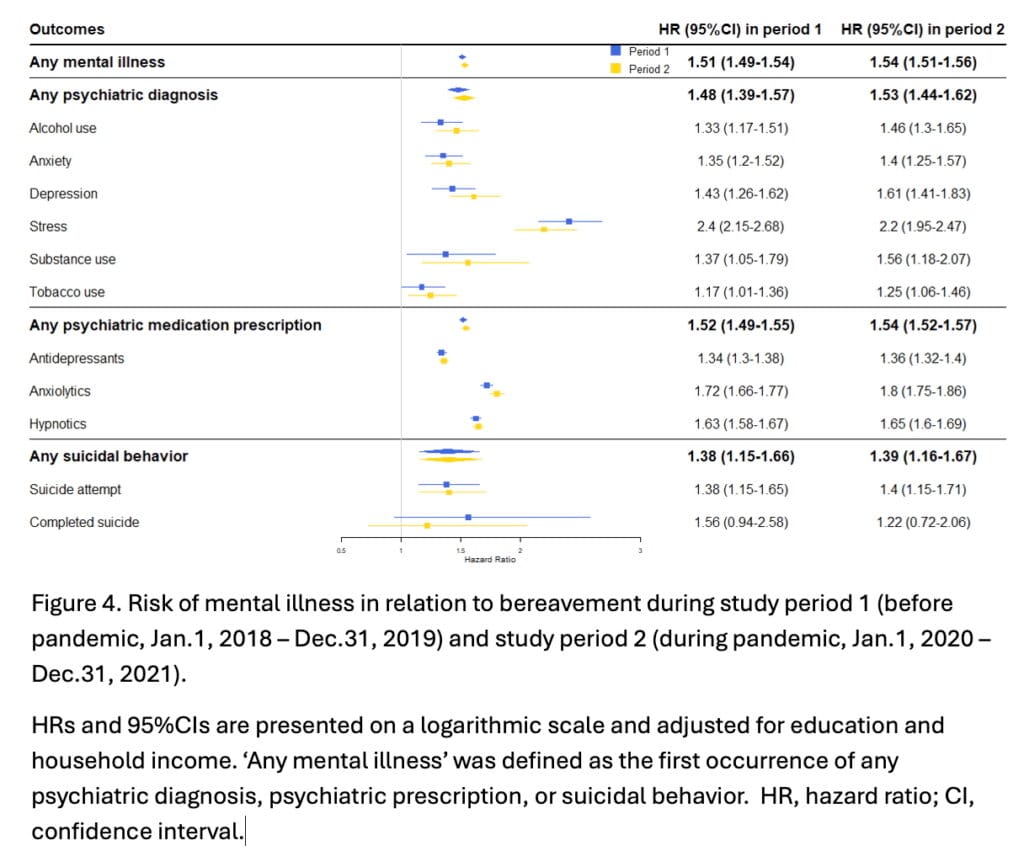Mental Health
Mental illness after bereavement before and during the COVID-19 pandemic in Sweden: a matched cohort study Shiyu Li* Shiyu Li Mary M Barker Huiqi Li Krisztina László Fen Yang Mikael Rostila Sandra Rogne Maria Feycthing Unnur A Valdimarsdóttir Fredrik Nyberg Fang Fang
Background
Compelling evidence suggests that bereavement is associated with an increased risk of mental illness. The COVID-19 pandemic led to an increase in the number of bereavements, which in combination with the applied social restrictions may have amplified bereavement’s mental health impact. We aimed to compare the risk of mental illness in relation to bereavement experienced before and during the pandemic in Sweden.
Methods
We conducted two nationwide cohort studies using Swedish national register data, including 2,828,747 individuals (282,875 bereaved [lost a parent, sibling, child or spouse]) before the pandemic (2018-2019) and 3,055,310 individuals (305,532 bereaved) during the pandemic (2020-2021), respectively. Mental illness was defined as the first occurrence of a psychiatric diagnosis, prescription of psychiatric medication, or suicidal behavior. Multivariable Cox regression models were used to estimate HRs with 95% CIs.
Findings
Bereaved individuals had a higher risk of mental illness compared to non-bereaved both before (HR 1.51, 95%CI 1.49-1.54) and during the pandemic (HR 1.54, 95%CI 1.51-1.56). The risk was highest shortly after bereavement, and was greater among females, the elderly, and individuals with lower socioeconomic status (SES) in both periods. The risk of mental illness was similar between bereavement due to COVID-19 (HR 1.59, 95%CI 1.49-1.70) and natural causes (HR 1.48, 95%CI 1.46-1.51) compared to non-bereavement.
Interpretation
Bereavement was associated with an increased risk of mental illness both before and during the pandemic. Female, the elderly and individuals with lower SES experienced a higher risk. Bereavement due to COVID-19 was not associated with a higher risk of mental illness than due to natural causes. The pandemic did not magnify the mental health impact by bereavement in Sweden. Given the varying mitigating strategies, further studies are needed to investigate if these findings are generalizable to other societal contexts.

